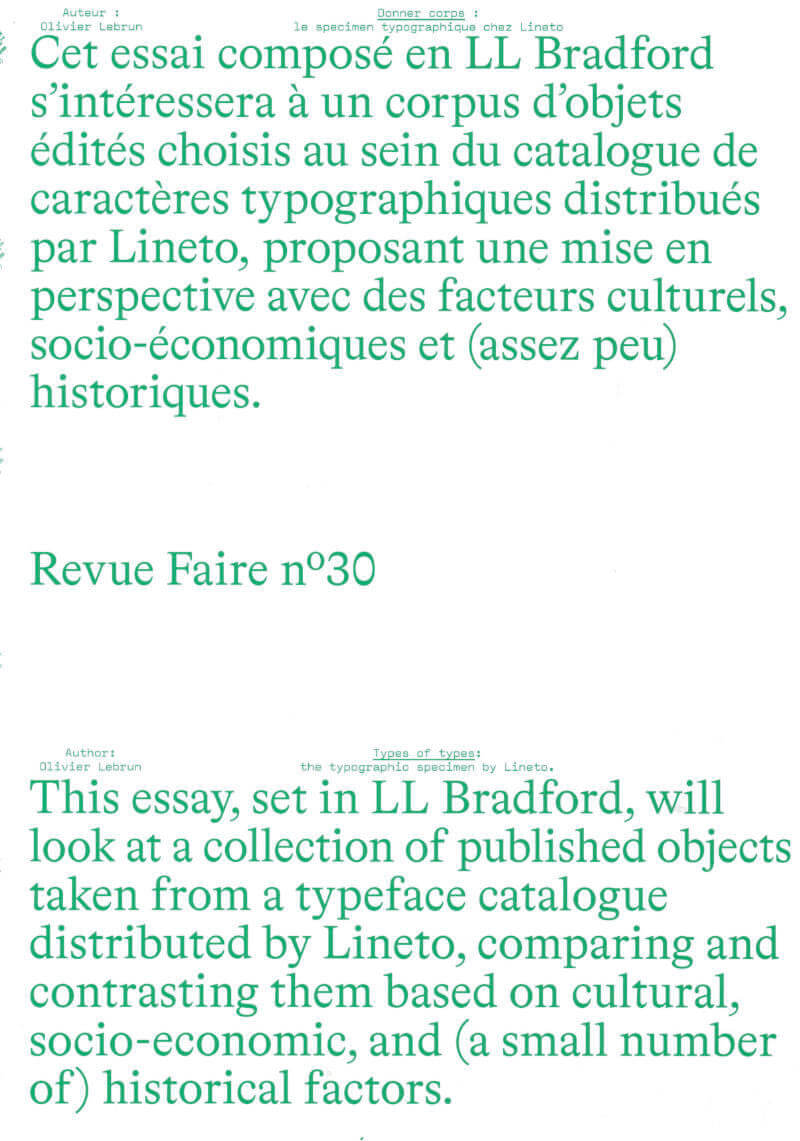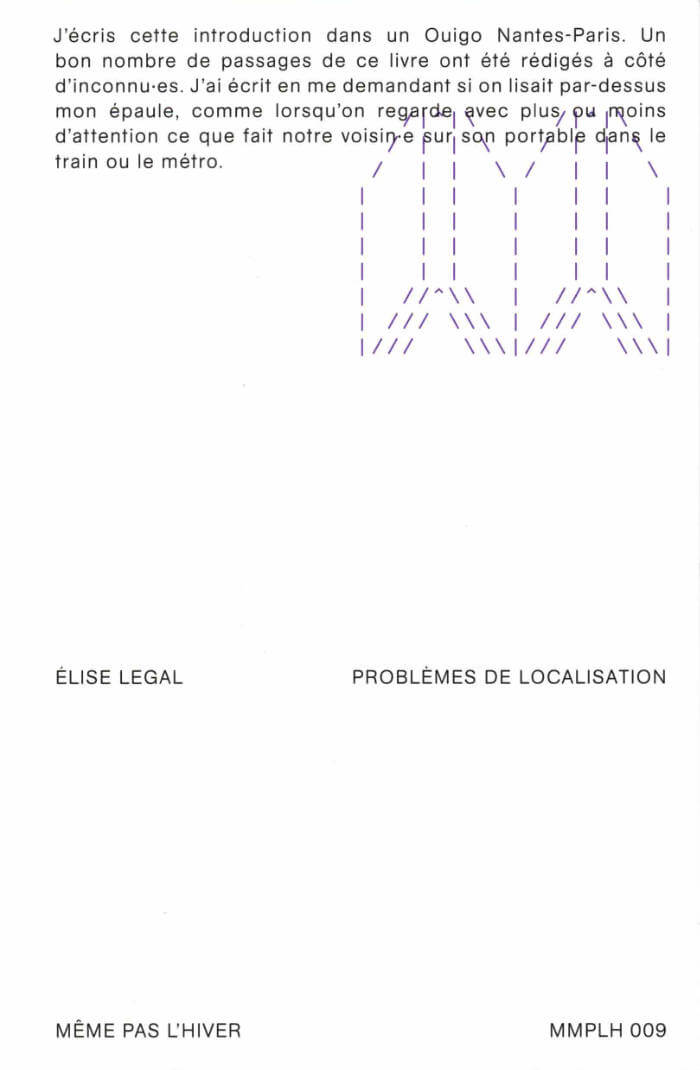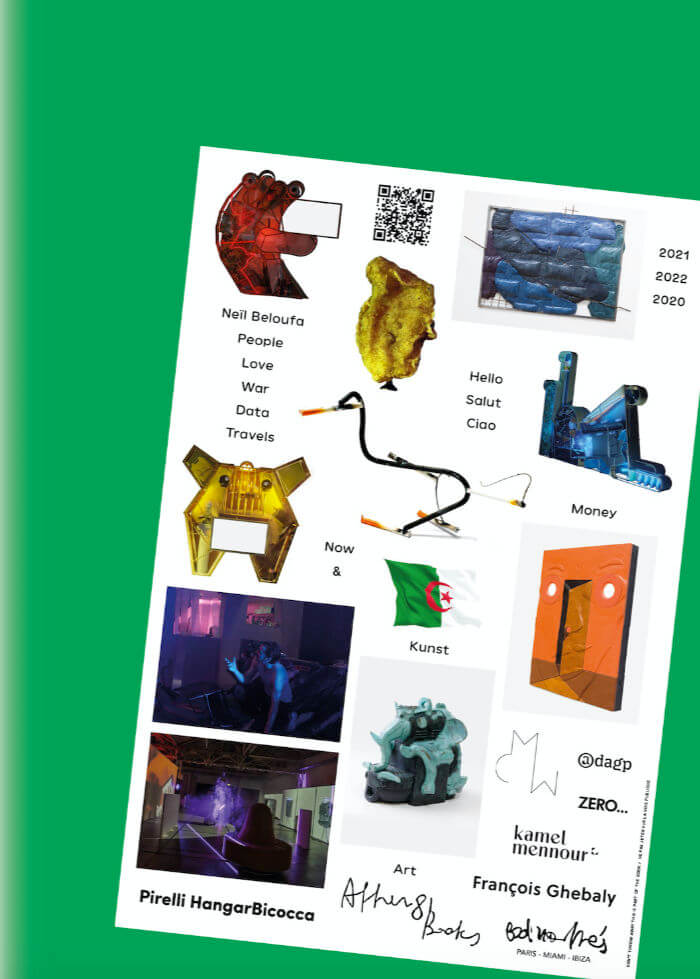Olivier Lebrun
Olivier Lebrun

Revue Faire n°30: Types of types: the typographic specimen by Lineto
For Lineto (https://lineto.com) the Specimen plays out through forms and formats in order to promote the foundry’s typefaces: books, posters, envelopes, pamphlets, letter transfers, print ads, and video clips as well as inflatable structures and bootlegs of logotypes. When Reala published LL Biff in 2000, the specimen employed graffiti culture and its modes of distribution, along with a combination of two references: “Medium is the message”*, “Style is the message”**. For Lineto the citation is a form that allows them to distribute their typographic catalogue while promoting diverse cultural fields: “Ignorance of your own culture is not considered cool!”***
* — Marshall McLuhan, Understanding Media: The Extensions of Man, 1964
** — Tony Silver and Henri Chalfant, Style Wars, 1983
*** — Print ad for Lineto published in Dot Dot Dot #16, 2008 that cites The Residents, Duck Stab Poster, 1978
And more

Énergies
Les sculptures et les films de Judith Hopf sont alimentés par des réflexions sur les relations que les êtres humains entretiennent avec la production et la technologie. Pour Énergies, sa première exposition monographique en France qui eut lieu conjointement à Paris à Bétonsalon et au Plateau, Frac Ile-de-France, l’artiste s’est concentrée sur cet élément invisible dont la quête accompagne notre quotidien et nos activités, produit par la conversion de ressources naturelles en puissance. Ce catalogue réunit des reproductions de dessins inédits, un entretien avec l’artiste et un texte critique de Tom Holert qui fait retour sur vingt années de travail.
Judith Hopf's sculptures and films are fuelled by reflections on the relationship human beings have with production and technology. For Énergies, her first solo exhibition in France, held jointly in Paris, at Bétonsalon and Plateau, Frac Ile-de-France, the artist focused on this invisible element whose quest accompanies our daily lives and activities, produced by converting natural resources into power. This catalog features reproductions of previously unpublished drawings, an interview with the artist and a critical text by Tom Holert, looking back over twenty years of work.
Textes / Texts
- François Aubart, Xavier Franceschi et Émilie Renard, "À propos d’énergie, d’amour et de chansons : conversation avec Judith Hopf"
- Tom Holert, "Changements de rythme : La méthodologie énergétique de Judith Hopf"
- François Aubart, Xavier Franceschi et Émilie Renard, "On Energy, Love, and Songs: Conversation with Judith Hopf"
- Tom Holert, "Changing Pace: Judith Hopf’s Energetic Methodology"
Traduction / Translation
Jean-François Caro
Louise Ledour
Typesetting : Olivier Lebrun

Problèmes de localisation
En sortant de l’école d’art, Élise Legal parcourt un monde de crises économiques, d’absurdités politiques et d’angoisses écologiques. Un monde dans lequel elle doit désormais légitimer sa démarche artistique dans des dossiers qui en font une fiction.
Problèmes de localisation contient sept textes, composés d’analyses critiques, de récits personnels et de poèmes, qui racontent cette entrée dans un environnement où circulent les corps, les marchandises, les informations et les capitaux. Élise Legal s’y déplace en voiture, en co-voiturage, en train, en bus ou en avion, découvrant ce que ce monde de transaction et de fluidité fait au langage. Elle cherche à comprendre comment il est incarné, échangé et habité dans les voix des pilotes d’avion, des startupers ou du président de la République, dans les textes de loi, les formulaires de demandes de bourses, la parole de ses enseigant·es, dans les textes de théorie critique comme dans la poésie des banquiers.
Élise Legal est artiste et autrice. Elle a étudié à l’École nationale supérieure des beaux-arts de Lyon et au Sheffield Institute of Arts. À travers une approche pluridisciplinaire qui mêle images trouvées, dessin et poésie, elle porte une attention particulière à la manière dont le langage et les corps coexistent. Elle poursuit également une thèse de recherche-création à Paris 8 qui porte sur l’agir politique de la poésie.
Graphisme : Olivier Lebrun

UNLICENSED: Bootlegging As Creative Practice
Over the last few decades the term ‘bootlegging’—a practice once relegated to smugglers and copyright infringers—has become understood as a creative act. Debates about homage, appropriation, and theft that are common in the art world, are now being held in the spheres of corporate branding, social media, and the creative industry as a whole. Today, bootlegging has become fetishized as an aesthetic in and of itself, influencing everything from underground record labels to DIY T-shirts, publishing ideologies, to acts of high fashion détournement.
UNLICENSED contains twenty-one interviews with a range of creative practitioners on the topic of bootlegging. The conversations in UNLICENSED investigate bootlegging’s creative and critical potential, and explore new ways bootlegging can be deployed in order to thrive as an impactful cultural force.
Interviews with: A March Issue (Line Arngaard & Sonia Oet), Babak Radboy, Clara Balaguer & Czar Kristoff, BLESS (Desiree Heiss & Ines Kaag), Boot Boyz Biz, Akinola Davies Jr, Eric Doeringer, Experimental Jetset (Marieke Stolk, Erwin Brinkers, Danny van den Dungen), Elisa van Joolen, Hassan Kurbanbaev, Urs Lehni & Olivier Lebrun, Jonathan Monk, Matt Olson, Online Ceramics (Elijah Funk & Alix Ross), Mark Owen, Printed Matter (Jordan Nassar & Christopher Schulz), Nat Pyper, Hassan Rahim, Shanzhai Lyric, SHIRT, Oana Stanescu

Neïl Beloufa: People Love War Data & Travels
Myriam Ben Salah, Benjamin Thorel
This is the first monograph on the internationally acclaimed French Algerian artist Neïl Beloufa (born 1985). Love, hatred, war, technology, social unrest, bodies and words in crisis: this is the material of which Beloufa’s work is made. His films, sculptures and multimedia installations audaciously explore how art can address today’s issues, challenging contemporary representations of social relationships, power games, and political and economic structures. An artist favoring collaborations over authorship, and responsive strategies over predetermined intentions, Beloufa has invented his own work methods, and a particular approach to the studio.
The catalog presents the artist’s projects over the past 12 years, including recent experiments with online platforms and NFTs; it takes as its starting point Beloufa’s solo show, Digital Mourning, at Pirelli HangarBicocca in Milan, and offers a non-conformist take on the genre of the monograph, thanks to Olivier Lebrun’s playful and inventive book design.
Beloufa’s work has been exhibited at the ICA, London; Palais de Tokyo, Paris; the Hammer Museum, Los Angeles; MoMA, New York; Schinkel Pavilion, Berlin; Schirn Kunsthalle, Frankfurt. He took part in the Venice Biennale in 2013 and 2019. His work is present in public and private collections including the Centre Pompidou, Paris; Museum of Modern Art, New York; Sammlung Goetz, Munich; and Julia Stoschek Collection, Düsseldorf & Berlin.
He is represented by François Ghebaly (Los Angeles / New York), Mendes Wood DM (Sao Paulo / Brussels / New York), kamel mennour (Paris / London), and Zero… (Milan).